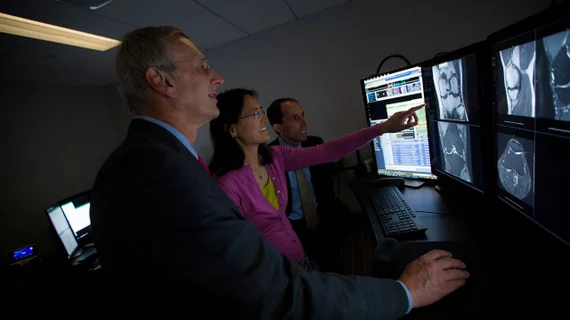Facebook, NYU collaborate to make MRI faster with AI
The NYU School of Medicine’s Center for Advanced Imaging Innovation and Research (CAI²R) and Facebook have announced a new collaborative research project aimed to increase the speed of MRI scans using artificial intelligence (AI), according to a Facebook news release published Aug. 20.
The project, called fastMRI, could produce MRI images up to 10 times faster than the current 15 minutes to an hour and make MRI technology more widely available. These accelerated MRIs could also fill the role of x-ray and CT machines, making imaging quicker and safer for patients.
“Unlike other AI-related projects, which use medical images as a starting point and then attempt to derive anatomical or diagnostic information from them (in emulation of human observers), this collaboration focuses on applying the strengths of machine learning to reconstruct the most high-value images in entirely new ways,” Facebook said in the release.
“With the goal of radically changing the way medical images are acquired in the first place, our aim is not simply enhanced data mining with AI, but rather the generation of fundamentally new capabilities for medical visualization to benefit human health.”
For the project, researchers from CAI²R and the Facebook Artificial Intelligence Research (FAIR) group will be using an imaging data set from NYU School of Medicine consisting of 10,000 clinical cases and comprises three million MRI scans of the knee, brain and liver.
Using AI, the researchers hope to make MRI technology capture less data and scan faster while preserving medical images—artificial neural networks will be trained to recognize to recognize the underlying structure of the images to reconstruct them without sacrificing accuracy, according to the release.
“We believe the fastMRI project will demonstrate how domain-specific experts from different fields and industries can work together to produce the kind of open research that will make a far-reaching and lasting positive impact in the world,” Facebook said.

